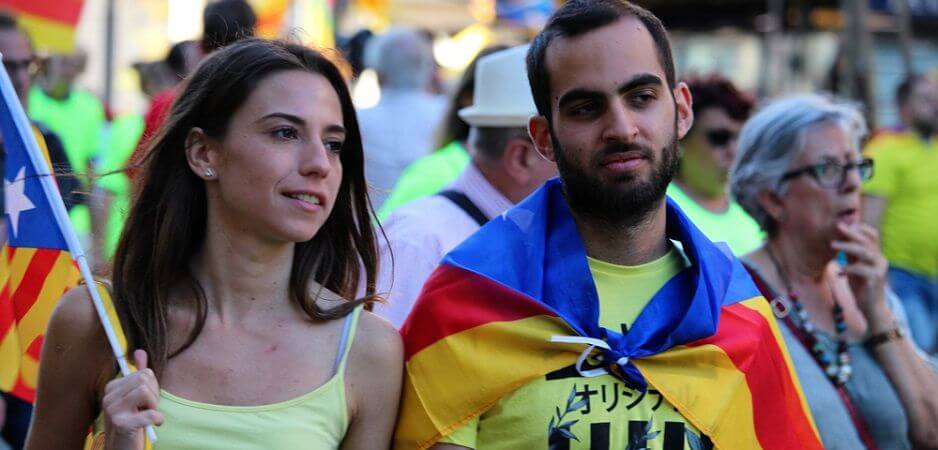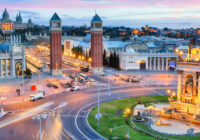The Catalan president has declared independence from Spain, but the government in Madrid has ruled the move illegal.
On October 1, Catalonia held a referendum over whether the region should secede from Spain. According to regional authorities, around 90% opted in favor of independence, but only 42% of eligible voters cast their ballot. Nine days later, Catalan President Carles Puigdemont issued a symbolic declaration of independence.
As per Article 155 of the Spanish Constitution, if Catalans attempt to declare independence, Madrid is allowed to suspend Catalonia’s government and assume the position of running the autonomous region. Spanish Prime Minister Mariano Rajoy has acted on behalf of this article and given the Catalan government until October 16 to drop the independence bid.
“Voting is a part of democracy, but a vote against democracy or outside a democracy is not democracy,” Rajoy said. “The farce that took place … was not democracy. It was an exercise against democracy.”
Observers are skeptical over the results of the referendum due to the low turnout. Those who are ardent supporters of remaining part of Spain have been referred to as the silent majority. But since the Catalan government signed off on secession, the opposition have begun to speak up. Just a week after the referendum, more than 350,000 demonstrators gathered in Barcelona to show their support for a unified nation of Spain.
The European Union also upholds the unity of Catalonia and Spain. Officials such as German Chancellor Angela Merkel have spoken out directly against Puigdemont’s efforts and declared their support for Rajoy.
The referendum and the ensuing political disarray have caused many Catalonians to lose trust in the government as their schools and streets turn to chaos.
The views expressed in this article are the author’s own and do not necessarily reflect Fair Observer’s editorial policy.
Photo Credit: Dino Geromella / Shutterstock.com
Support Fair Observer
We rely on your support for our independence, diversity and quality.
For more than 10 years, Fair Observer has been free, fair and independent. No billionaire owns us, no advertisers control us. We are a reader-supported nonprofit. Unlike many other publications, we keep our content free for readers regardless of where they live or whether they can afford to pay. We have no paywalls and no ads.
In the post-truth era of fake news, echo chambers and filter bubbles, we publish a plurality of perspectives from around the world. Anyone can publish with us, but everyone goes through a rigorous editorial process. So, you get fact-checked, well-reasoned content instead of noise.
We publish 2,500+ voices from 90+ countries. We also conduct education and training programs
on subjects ranging from digital media and journalism to writing and critical thinking. This
doesn’t come cheap. Servers, editors, trainers and web developers cost
money.
Please consider supporting us on a regular basis as a recurring donor or a
sustaining member.
Will you support FO’s journalism?
We rely on your support for our independence, diversity and quality.






